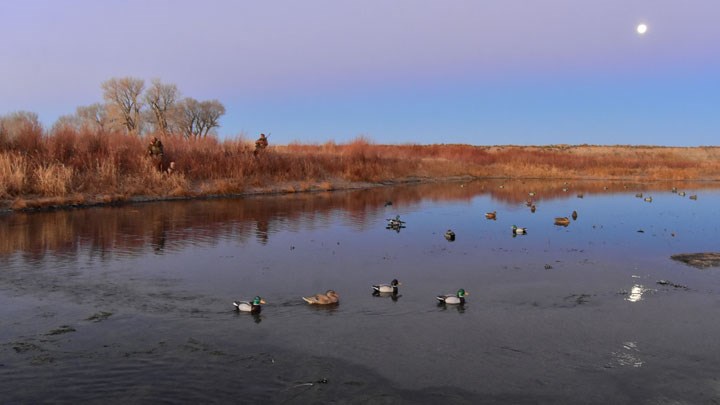
by Phil Phillips - Tuesday, March 15, 2022

It has been a busy month for American Wildlife Conservation Partners (AWCP) in fighting for hunters and anglers. On Mar. 7, four AWCP member groups—the NRA Institute for Legislative Action, Safari Club International, the Sportsmen’s Alliance and the Rocky Mountain Elk Foundation—all filed suit to intervene and dismiss the Center for Biological Diversity (CBD) v. U.S. Fish and Wildlife Service (USFWS) court case that the CBD filed in November 2021 to try to overturn the Trump administration’s 2020 rule expanding hunting and fishing access on 2.3 million acres of National Wildlife Refuge land. On Mar. 11, 41 of the 50-plus AWCP member groups, including the four interveners, signed a letter to the USFWS urging it not to settle with the CBD after court filings revealed it was engaging in settlement discussions.
“We respectfully request that the Service reject any settlement of pending litigation that would undermine or reduce the expansion of hunting and fishing opportunities on National Wildlife Refuges,” the AWCP wrote. “A settlement would be inconsistent with the Service’s responsibilities under the National Wildlife Refuge System Improvement Act of 1997 (Improvement Act). The Improvement Act directs the Service to prioritize the expansion of hunting and fishing on refuges.”
For background on the lawsuit, the CBD claims the USFWS 2020 rule violates the Endangered Species Act (ESA) and National Environmental Policy Act because hunting and fishing on these lands, which hunter and angler funding paid to establish, potentially threaten endangered species with lead poisoning from ammunition and tackle. Ironically, the AWCP letter pointed out how a few of the hunting opportunities the CBD is calling out were requested by state wildlife agencies that need help managing over-abundant or invasive species.
“We sincerely hope the Service will not allow a lawsuit to dictate the conservation and management of wildlife on refuges,” the AWCP letter noted. “The undersigned organizations strongly object to any settlement that would close hunting or fishing or ban the use of traditional ammunition or fishing tackle. It is especially concerning that the Service might consider closing refuges without any input from the hunting conservation community or state wildlife agencies.”
The letter hits on one other fact: The National Wildlife Refuge System is underfunded and understaffed. “Any settlement that would add to the Service’s financial burden should be summarily rejected,” the letter explained. “The Service cannot afford to adopt the view of a single interest group that erroneously objects to particular priority recreational uses successfully allowed on refuges throughout the country.”
But the biggest reason for the USFWS to steer clear of a settlement? The CBD’s claims are not based on facts. Making the point, the AWCP letter also shared that the CBD ignored the comments that multiple AWCP organizations submitted when the 2020 rule was being considered, adding. “These comments make clear that the rule already satisfies all applicable laws.”
Worth a mention, in February the USFWS announced a record $1.5 billion in funding for wildlife conservation and habitat enhancement for state wildlife agencies in 2022. This is thanks to the excise taxes sportsmen and women pay on hunting, shooting and fishing equipment. At the time, the USFWS even reiterated that hunting and fishing are in step with the president’s “America the Beautiful” initiative.
We hunters and anglers will wait and see what happens next. In the meantime, the AWCP deserves our thanks. It has big shoes to fill in representing the interests of millions of hunter-conservationists, wildlife and natural resource managers, outdoor recreationists, conservation educators and wildlife scientists across America. Fortunately, the AWCP recently celebrated its 20th anniversary and appears to be going as strong as ever.
For more information on the AWCP, click here.
E-mail your comments/questions about this site to:
[email protected]
